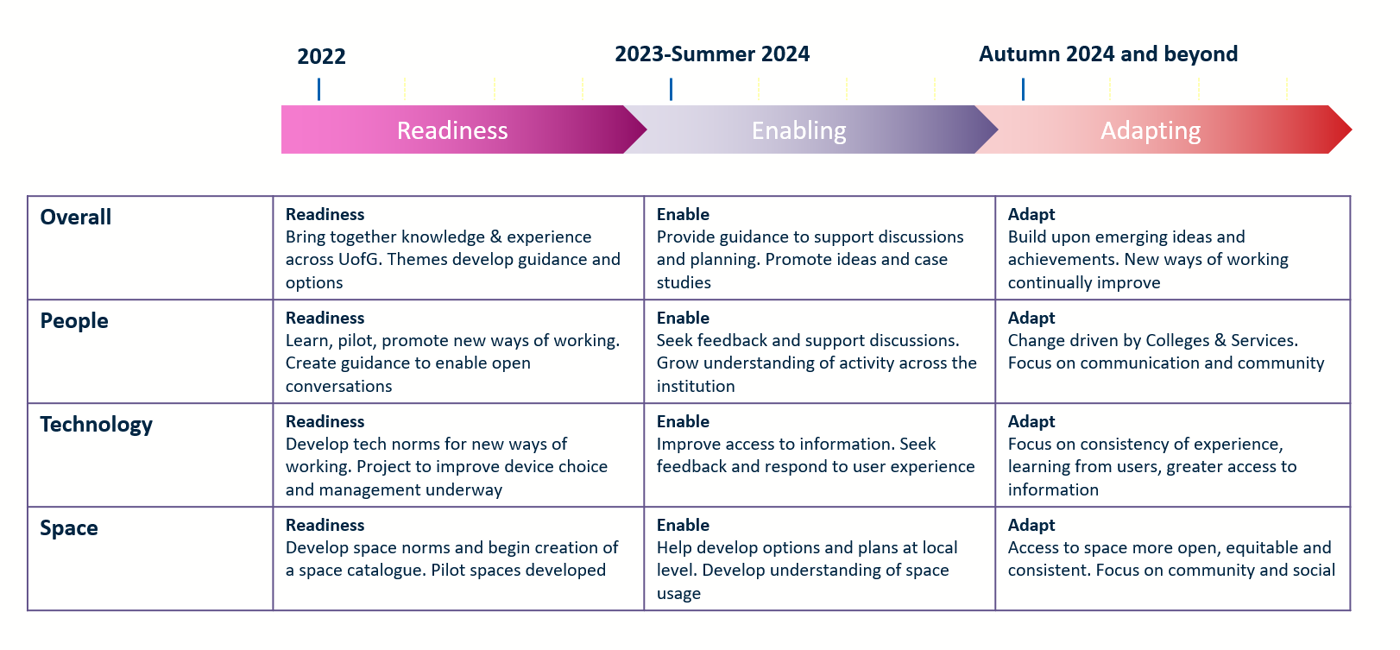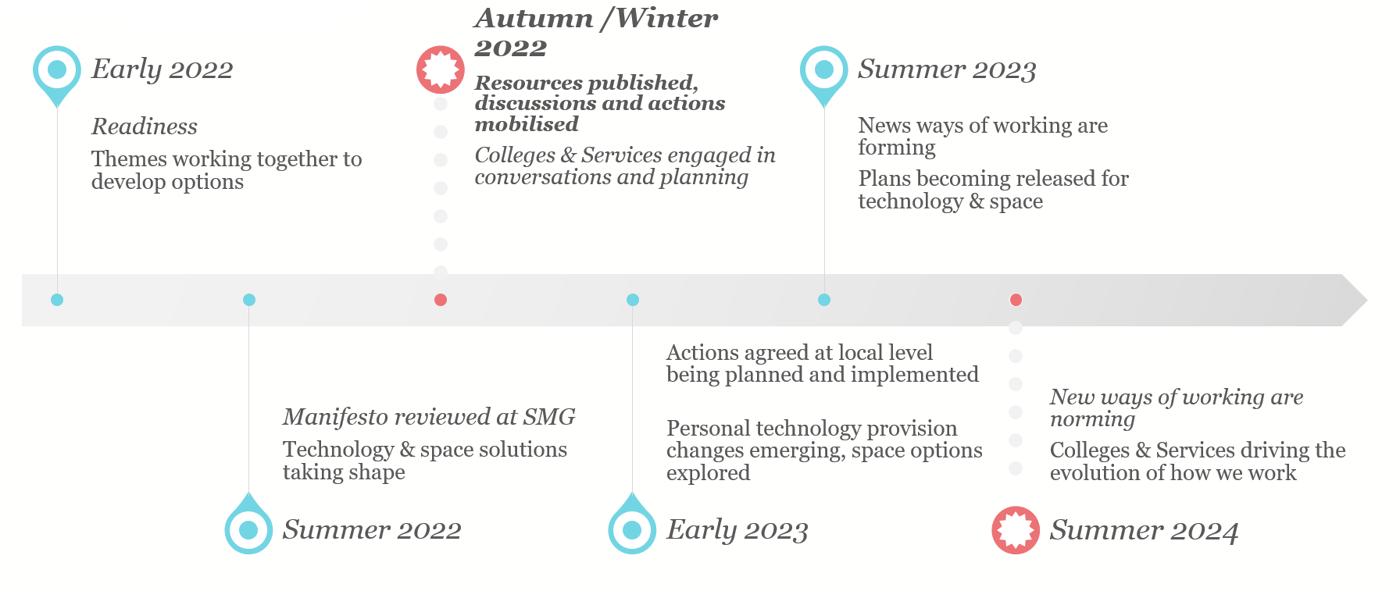We have consulted widely and identified significant benefits of hybrid and flexible working.
- Empowering colleagues and teams to have an element of choice in selecting the right environment for the nature of the work undertaken;
- Enhancing colleague motivation, engagement and retention through a positive and productive outputs-based culture that enables us to perform at our best;
- Creating a fairer and more equitable working environment, with space and technology more responsive to need;
- Increasing the diversity and inclusivity of our workplace through the removal of perceived barriers to work, thereby enhancing our prospective talent pool;
- Reducing our carbon footprint and contributing to the University’s Glasgow Green strategy through environmentally friendly approaches to work.
At the same time, we have an opportunity to use new ways of working to re-establish our strong sense of campus communities.
We now have the chance to reflect on what our campuses are for, and how our space and technology can best be used to serve our communities to socialise, collaborate and feel fully part of the University.
The People theme is tasked with listening, gathering feedback, generating conversations, and effecting culture change across the University. Change will be driven by Colleges and Services, and will focus on community, equity, and fairness. We have a range of actions for the next 12 months.
- We will collect case studies and illustrations from across the University of experiences of hybrid and flexible working, with particular focus on benefits and successes, and use these to showcase alternatives to current ways of working. These will be communicated to the whole University community.
- Line managers will be given resources to prepare a New Ways of Working plan in Autumn 2022, incorporating space and technology norms, case studies, and illustrations.
- The plan will be developed as a result of collaboration between colleagues in each part of the University. All areas are encouraged to have ‘blank slate’ conversations about how space and technology are to be utilised, with units asked to re-imagine using their buildings as if they were entering them for the first time.
- Strategic Planning Reports in Autumn 2022 are to include a ENWoW plan.
- We will prepare updated guidance on working from home, flexible working policies, advice on hybrid working to provide colleagues with a clear idea of what they can, and cannot, expect in terms of space, tech., and other items.
The Technology theme is tasked with developing technology norms for new ways of working, and to improve device choice, its infra-structure and management across the University. Planned actions include:
- The creation of a device and peripheral catalogue (liaising with the End User Device Working Group) with recommended device plans for our UofG community to ensure common procurement before DAAS (Device as a Service) starts.
- Activation of DAAS, ensure sign-off for JAMF (software for Mac device management) and a Central Purchasing Function.
- Recruitment of staff to support JAMF, an expanded purchasing function and the subsequent initiation of a JAMF pilot.
- University-wide communication about DAAS service description and adoption.
- Review of the adoption of tech. in agile spaces in ARC and subsequent reporting on lessons learned.
The Space theme aims to make access to space more open, equitable, and consistent. It will develop space norms, help develop and implement local plans, and increase our understanding of space usage across the University. At the same time, it will focus on the communal and social aspects of our estate. Planned actions include:
- Creation of a summary document (‘brochure’) of existing pilot and hybrid workspaces across the University (including Isabella Elder, Tay House, ARC, etc).
- Creation of ‘tactical solutions’ guides to support colleagues to manage space constraints on a local level; based on existing documentation and incorporating space norms and suggested ratios.
- Further development of a suite of operational resources to support colleagues in managing space effectively, including desk policies, checklist for office moves, and illustrations of new possibilities for shared spaces, hot-desking, and collaboration, etc.
- Development of a ‘space compendium’ and better summary data on space availability across our campuses.
- Creation, after discussion and consultation, of appropriate spaces for social interaction in more buildings across campus.
Our timeline, from Summer 2022 until Summer 2024, is presented below, with details of actions, events, and deliverables divided by themes. Across each of our three themes, we will continue to consult widely across the University as plans move forward, and to evaluate our progress in years two and three of the project.



